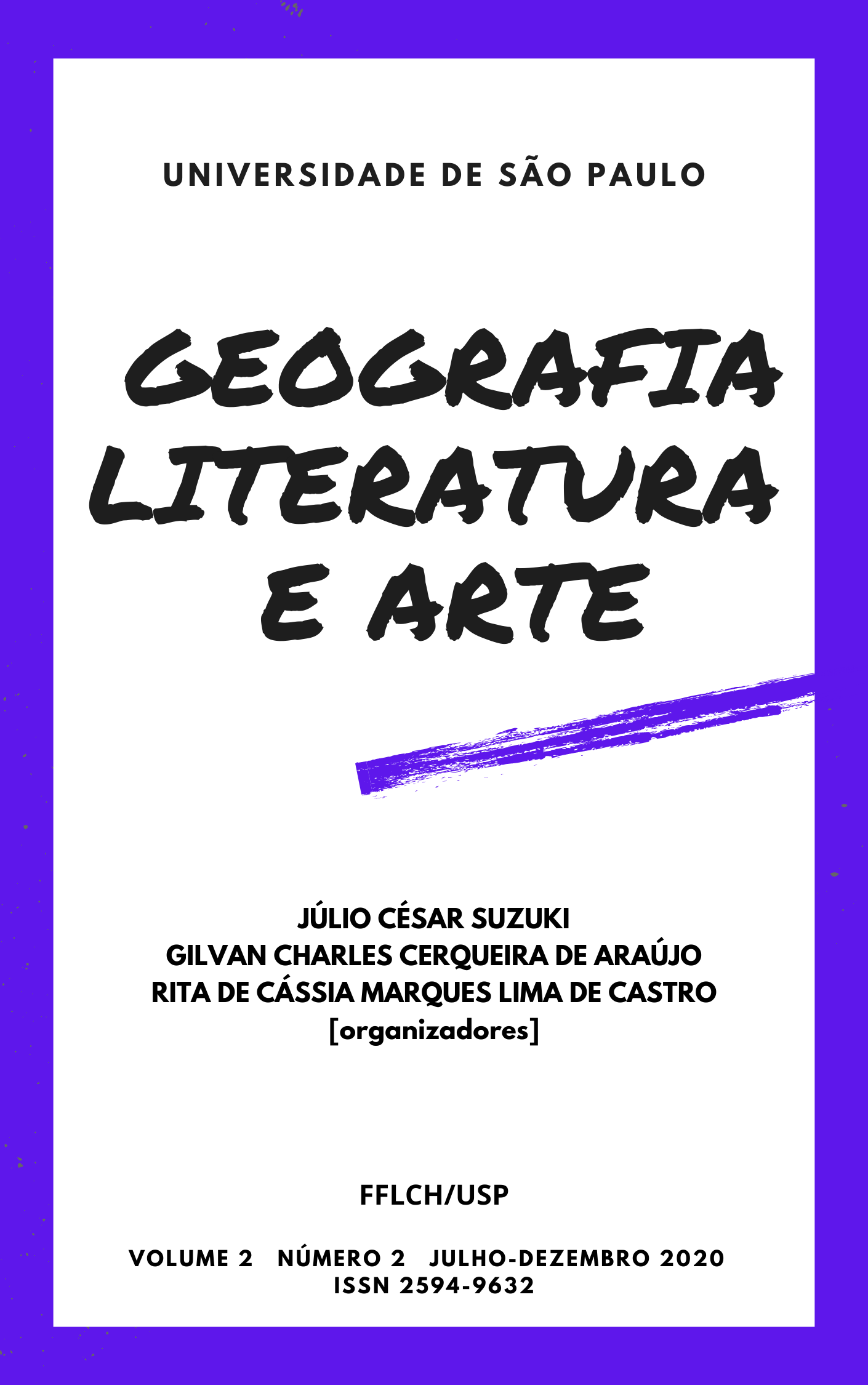An An autonomous place in the global city: an interpretation of Dionne Brand’s “What we all long for”
DOI:
https://doi.org/10.11606/issn.2594-9632.geoliterart.2020.167477Keywords:
Diasporic subjects, Emotional geographies, Canadian literatureAbstract
Dionne Brand creates characters with peculiar aspirations in her novel What we all long for. In Toronto, Quy, Tuyen, Carla, Oku and Jackie have their childhoods and origins shaped by the urban spaces they occupy. The author elaborates the struggles between immigrants in Canada and their children, born in the country, as these young people drift in Toronto. How much are these tensions natural in child-parent relationships? In what ways are they more difficult because of the immigrant experience? In this paper, we focus on Oku to point out that the strain in child-parent relationships resembles the tensions between the diasporic subjects and the global city. We conclude that Oku became more aware of his potential to act upon the development of his identity. The main concept that guided this interpretation was that of reterritorialization, as proposed by Kit Dobson (2006).
Downloads
References
BRAND, Dionne. What we all long for: a novel. 1 ed. Toronto: Vintage Canada, 2005, 318p.
BRAND, Dionne. Dionne Brand: Writing against tyranny and toward liberation. Video recorded at Barnard College in NYC. Excerpt from the event Poetics of Justice: A Conversation Between Claudia Rankine and Dionne Brand, April 25, 2017. Available at: https://www.youtube.com/watch?v=ychlzoeeIm0
BRYDON, Diana. A place on the map of the world: Locating hope in Shani Mootoo’s He drown she in the sea and Dionne Brand’s What we all long for. Macomère: Journal Of The Association Of Caribbean Women Writers And Scholars, V.8, pp. 94-110, 2006.
ROBBINS, Bruce. Actually existing cosmopolitanism. In: CHEAH, Pheng; ROBBINS, Bruce Cosmopolitcs: Thinking and feeling beyond the nation. Edited by. 1-19. Minneapolis, MN & London: University of Minnesota Press, 1998. p. 1-19.
DAVIDSON, Joyce; MILLIGAN, Christine. Embodying Emotion Sensing Space: Introducing emotional geographies. Social & Cultural Geography, United Kingdom. v. 5, n. 4, p. 523 - 532, December 2004.
DOBSON, Kit. Struggle Work: Global and Urban Citizenship in Dionne Brand’s What We All Long For. Studies in Canadian Literature. Canada, v. 31.2, p. 88-104, 2006.
HALL, Stuart. A identidade cultural na pós-modernidade. Translation: Tomaz Tadeu da Silva, Guaracira Lopes Louro. 11. ed. Rio de Janeiro: DP&A, 2006, 102 p.
SASSEN, Saskia. Globalization and its discontents. New York: The New Press, 1998.
Downloads
Published
Issue
Section
License
Copyright (c) 2020 Beatriz de Carvalho Monteiro

This work is licensed under a Creative Commons Attribution 4.0 International License.


